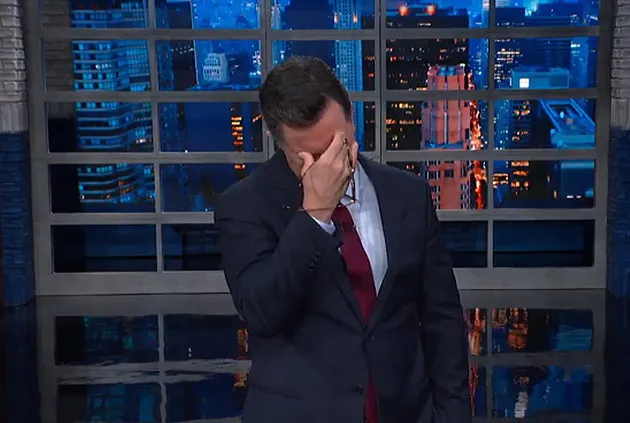
worthitorwoke.com
Jay Leno Speaks Out: Why Late-Night Comedy Is Losing Half Its Audience
Jay Leno, the longtime host of The Tonight Show, has always been the guy who lets his jokes speak for him, sidestepping anything that could ignite controversy. So when he recently called out today’s late-night hosts for alienating half their audience with partisan politics, it turned heads. Speaking with David Trulio at the Ronald Reagan Presidential Foundation, Leno, known for keeping his public persona neutral, didn’t hold back. His critique of the hyper-political shift in late-night comedy feels like a wake-up call — and it’s easy to see why his perspective hits home.
Leno, who helmed The Tonight Show from 1992 to 2009 and again from 2010 to 2014, built his legacy on balance. “It was fun to me when I got hate letters [saying], ‘You and your Republican friends’ and ‘I hope you and your Democratic buddies are happy’ — over the same joke,” he said. “That’s how you get a whole audience.” His even-handed approach wasn’t just a gut instinct; it was measurable. A 2014 study by the Center for Media and Public Affairs at George Mason University analyzed Leno’s monologues and found his political jokes split almost evenly between Republicans and Democrats, with 52% targeting Democrats and 48% Republicans across his tenure. The study, which tracked thousands of jokes, highlighted Leno’s deliberate effort to avoid favoring one side, a strategy that kept his viewership broad and diverse.
Stephen Colbert crying
Contrast that with today’s late-night scene, where hosts like Stephen Colbert and Jimmy Kimmel wear their political leanings on their sleeves. Leno’s frustration is clear: “Why shoot for just half an audience all the time?” he asked. “I mean, I like to bring people into the big picture. I don’t understand why you would alienate one particular group.” His point isn’t theoretical — it’s backed by real consequences. In a 2022 interview with The Hollywood Reporter, Jimmy Kimmel admitted that his outspoken criticism of then-President Trump cost him dearly. “I’ve lost half of my fanbase — probably a good 60 percent of the people who used to watch our show no longer do because of this,” Kimmel said, acknowledging the backlash to his nightly political jabs. He doubled down, saying he’d make the same choice again, but the numbers tell the story: his show’s ratings dropped significantly, with some reports estimating a 50% viewership decline since 2015.
Leno’s comments, recorded before CBS’s abrupt cancellation of The Late Show with Stephen Colbert (set to end in May 2026), feel almost prophetic. While CBS pointed to financial reasons, the timing — just after a $16 million defamation settlement with President Trump — has sparked chatter about political fallout, given Colbert’s frequent anti-Trump barbs. Whether politics played a role or not, the cancellation underscores Leno’s warning: leaning too hard into one side can have a cost.
Reflecting on his own approach, Leno pointed to his 40-year friendship with Rodney Dangerfield. “I have no idea if he was Democrat or Republican,” he said. “We never discussed [it], we just discussed jokes.” That focus on humor over ideology let them connect with audiences across the spectrum. Leno’s not against political humor — he loves a sharp jab — but he believes it should be funny first, not a lecture. “I don’t think anybody wants to hear a lecture,” he noted, a sentiment that resonates for anyone tired of comedy feeling like a soapbox.
For Leno to speak out like this is out of character, making his words all the more striking. He navigated four presidential administrations on The Tonight Show, poking fun at Clinton’s scandals, Bush’s gaffes, and Obama’s rise without letting his personal views take center stage. That neutrality, backed by data like the George Mason study, kept his audience broad and his ratings strong. Today’s hosts, by contrast, seem content to cater to a narrower crowd, a choice Leno finds baffling. “Just do what’s funny,” he urged, a simple call to return to what made late-night TV a nightly ritual for millions.
As the debate over late-night’s direction grows louder, Leno’s rare step into the fray offers clarity. Comedy should be a refuge, a place where everyone can laugh together. By choosing sides, today’s hosts risk losing that spark — and, as Kimmel’s own words confirm, half their audience with it. Maybe it’s time to revisit Leno’s playbook: tell the joke, skip the sermon.The post Jay Leno Speaks Out: Why Late-Night Comedy Is Losing Half Its Audience first appeared on Worth it or Woke.










